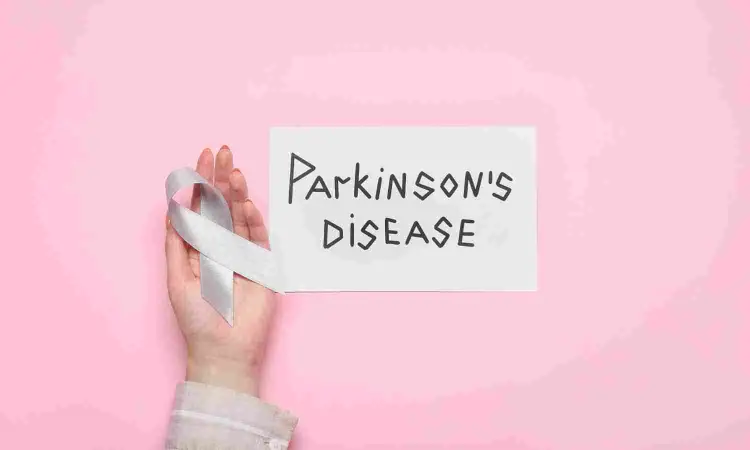- Home
- Medical news & Guidelines
- Anesthesiology
- Cardiology and CTVS
- Critical Care
- Dentistry
- Dermatology
- Diabetes and Endocrinology
- ENT
- Gastroenterology
- Medicine
- Nephrology
- Neurology
- Obstretics-Gynaecology
- Oncology
- Ophthalmology
- Orthopaedics
- Pediatrics-Neonatology
- Psychiatry
- Pulmonology
- Radiology
- Surgery
- Urology
- Laboratory Medicine
- Diet
- Nursing
- Paramedical
- Physiotherapy
- Health news
- Fact Check
- Bone Health Fact Check
- Brain Health Fact Check
- Cancer Related Fact Check
- Child Care Fact Check
- Dental and oral health fact check
- Diabetes and metabolic health fact check
- Diet and Nutrition Fact Check
- Eye and ENT Care Fact Check
- Fitness fact check
- Gut health fact check
- Heart health fact check
- Kidney health fact check
- Medical education fact check
- Men's health fact check
- Respiratory fact check
- Skin and hair care fact check
- Vaccine and Immunization fact check
- Women's health fact check
- AYUSH
- State News
- Andaman and Nicobar Islands
- Andhra Pradesh
- Arunachal Pradesh
- Assam
- Bihar
- Chandigarh
- Chattisgarh
- Dadra and Nagar Haveli
- Daman and Diu
- Delhi
- Goa
- Gujarat
- Haryana
- Himachal Pradesh
- Jammu & Kashmir
- Jharkhand
- Karnataka
- Kerala
- Ladakh
- Lakshadweep
- Madhya Pradesh
- Maharashtra
- Manipur
- Meghalaya
- Mizoram
- Nagaland
- Odisha
- Puducherry
- Punjab
- Rajasthan
- Sikkim
- Tamil Nadu
- Telangana
- Tripura
- Uttar Pradesh
- Uttrakhand
- West Bengal
- Medical Education
- Industry
Tetanus Vaccination Could Reduce Risk of Parkinson's Disease: Study

A recent study published in the recent issue of Cold Spring Harbor Laboratory journal uncovered a promising association between tetanus vaccination and a significant reduction in the occurrence and progression of Parkinson’s disease (PD). This research leverages cutting-edge machine learning algorithms to analyze the impact of vaccinations and medication purchases on the development and severity of PD.
Parkinson’s disease is characterized by progressive neurodegeneration that affects both the autonomic and central nervous systems. The patients with PD typically suffer from hallmark symptoms such as resting tremor, bradykinesia (slowness of movement) and rigidity. Despite extensive research, the exact causes of PD remain inconclusive and current treatments primarily focus on symptom management rather than halting disease progression.
This innovative study unveiled significant findings where the individuals who received an anti-tetanus vaccination showed a marked decrease in the occurrence of PD. The analysis demonstrated a time-dependent relationship by indicating that the more time elapsed since vaccination, the greater the reduction in both the rate of PD occurrence and its progression.
The study also revealed supporting findings that antimicrobial treatments significantly impacted the severity of PD. This suggests a potential involvement of the bacterium Clostridium Tetani that causes tetanus in the pathology of Parkinson’s disease. The research hypothesize that the eradication of C. Tetani through vaccination and antimicrobial treatments may play a pivotal role in reducing PD risk and progression.
The implications of this study were validated through controlled clinical trials, where tetanus vaccination and targeted antimicrobial therapies were observed as revolutionary strategies in the prevention and management of Parkinson’s disease. Such an approach would not only reduce the burden on patients and their families but also transform the current treatment trend which has long sought effective means to address the neurodegenerative aspects of PD.
The study employed sophisticated machine learning algorithms to track disease progression which offers a robust framework for analyzing large datasets and identifying potential correlations. This advanced methodology ensured the reliability and accuracy of these findings in providing a strong foundation for future research and therapy. Overall, this innovative study presents a strong case for the potential benefits of tetanus vaccination and antimicrobial treatments in combating Parkinson’s disease. Further clinical validation and studies are imperative which could adapt these strategies to a new era in PD prevention and management.
Reference:
Israel, A., Magen, E., Merzon, E., Ruppin, E., Vinker, S., & Giladi, N. (2024). Anti-tetanus vaccination is associated with reduced occurrence and slower progression of Parkinson’s disease. Cold Spring Harbor Laboratory. https://doi.org/10.1101/2024.05.03.24306800
Neuroscience Masters graduate
Jacinthlyn Sylvia, a Neuroscience Master's graduate from Chennai has worked extensively in deciphering the neurobiology of cognition and motor control in aging. She also has spread-out exposure to Neurosurgery from her Bachelor’s. She is currently involved in active Neuro-Oncology research. She is an upcoming neuroscientist with a fiery passion for writing. Her news cover at Medical Dialogues feature recent discoveries and updates from the healthcare and biomedical research fields. She can be reached at editorial@medicaldialogues.in
Dr Kamal Kant Kohli-MBBS, DTCD- a chest specialist with more than 30 years of practice and a flair for writing clinical articles, Dr Kamal Kant Kohli joined Medical Dialogues as a Chief Editor of Medical News. Besides writing articles, as an editor, he proofreads and verifies all the medical content published on Medical Dialogues including those coming from journals, studies,medical conferences,guidelines etc. Email: drkohli@medicaldialogues.in. Contact no. 011-43720751


